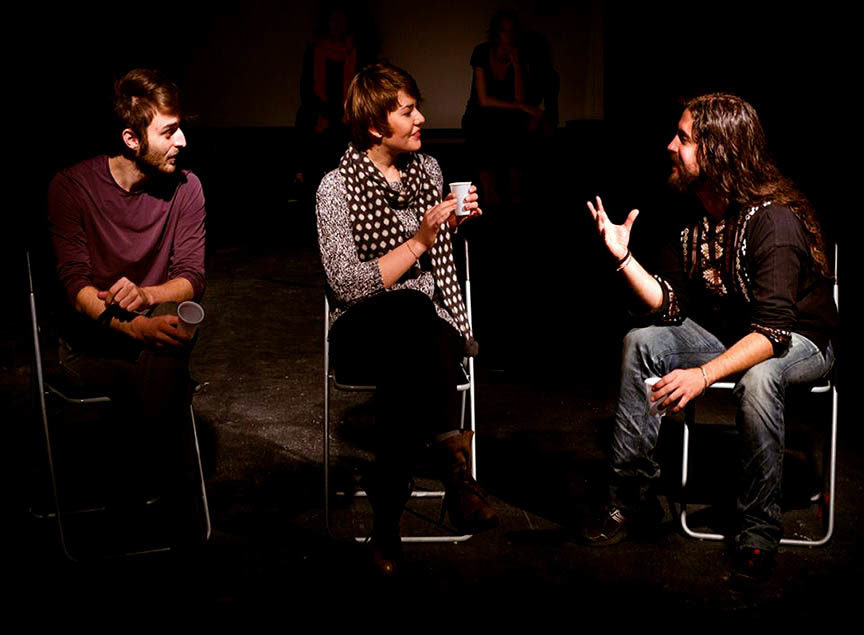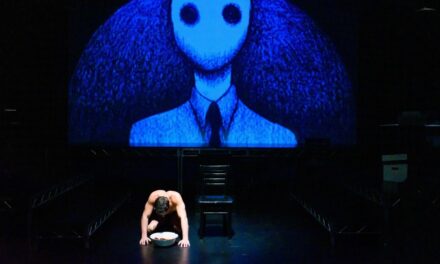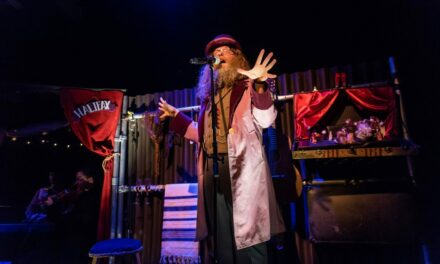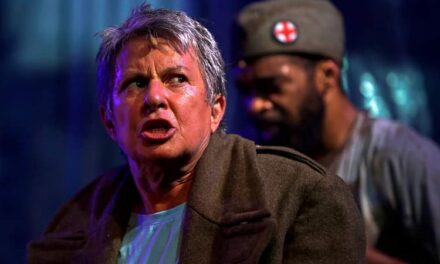This post was written by the director, dramaturg, and educator, Hannah Wolf, who is currently in Romania on a Fulbright Grant. In late 2013, TheTheatreTimes.com collaborated with TotArt to help find and invite theatre artists under 30 to participate in a week’s worth of workshops and shows in Valencia, Spain on the theme: “Theatre and Democracy.” Student artists from Romania, France, Spain, and America came together to devise original stage pieces created using a democratic system. Hannah was one of them.
What do 11 Romanians, 7 French, 1 American and a handful of Spaniards have in common?
Surprisingly enough, it’s not English. This group of theatre artists and aficionados descended upon TOTART for a week of collaboration, all interested in exploring the questions: What is a democracy, and how does it affect our lives as artists?
Funded by the ‘Youth Program in Action’ from the European Union, we young (under 30) theatre and film makers went to Valencia, Spain and were given one simple task: to function as a democracy. Something that in theory is much easier than in practice, when the group, full of different languages, histories, and opinions was asked to decide upon a definition of democracy. Thoughts on the topic ranged from “Let’s play with national anthems” to, “democracy is a concept, it doesn’t exist” to “How do the Greeks play a role?”
Officially, there were 27 of these ideas and questions, which then had to be released to the ensemble, because access to information is key, and also voted upon. The ensemble was asked to vote yes, no or no comment on every single talking point. Tension, confusion, and frustration were high as we ended the first day, unsure about what had been decided upon, but all keenly aware of the fact that theatre is not a democracy.
So, what’s one to do when the ensemble feels fractured and discontent? Admitting defeat wasn’t an option because we’re artists and we don’t give up. But perhaps the next best thing to “true” democracy is a devised theatre process, where there is a leader, but all of the ensemble members are co creators.
Day Two began with a new sense of excitement, a new way of questioning democracy, when there is a leader (or leaders) who drive the ship, but it’s the actors, designers and theatre practitioners who build it. This approach to theatre offers the ensemble the opportunity to voice their opinions, successes, and issues, it’s an open process, but it usually takes months, if not years, to create a finished piece as an ensemble. We had 4 days.
Democracy is a slow process, based on connection; devising is a slow process, based on the trajectory of the work and exploration done by the ensemble. Trust is the key word when it comes to devising (and democracy), and that’s not something that you can force. Trust also comes with leadership, a person with clear goals, who’s able to communicate clearly with many people, despite language barriers.
As a director, I was taught to create a model society in the rehearsal room, no matter if it’s a traditional process or a devised one. What if we start to apply the principles of devising to democracy? Devising has to be a flexible process, able to fit the needs of the certain ensemble members in the room. Democracy needs to be completely unique to each country’s requirements, the hard-edged universal definition is an ideal that can’t exist anymore. Democracy needs to be able to adapt to every situation, rather than imposing an idea that someone else decided on. There is inherent risk in devising. It’s safer to be the puppet (subject, citizen etc.), to have someone else tell you what to do, to say, where to move. It’s safer to let the risk of failure fall onto one person (director, president etc.), but devising asks the ensemble to each have a stake in the work created, something that perhaps democracy needs to do.
What our devising process led to was an ownership over the 30-minute piece that was created. Everyone in the ensemble had a stake in the whole and was willing to take a risk, to perform their own personal views of the process and that big scary word, democracy. This led to widely different pieces that encompassed performance art, dance, absurdism, process vs. product, text, and music. What all of these pieces shared was the same backbone, the people behind the movement, words, and sound. It was a piece that represented the ensemble, perhaps a “true” democracy, one that represents the people above all.
So, did we solve the world’s problems? Not at all. In the end, we weren’t even able to decide on a definition of democracy that worked for all of us. But what we did leave with is the importance of international collaboration and the recognition that the need to create transcends language and borders. This need to connect across barriers is becoming more and more important, as funding sources dry up and with individualism and nationalism is on the rise.
In this time of complete unknown about the future, when the world feels as if it is teetering on the edge of who knows what, these connections are what keeps us in check, able to share and learn. It’s international connections that may, one day, provide the new political system.
Hannah Wolf is a director, dramaturg and educator, originally from Juneau, Alaska. She’s collaborated with the SITI Company, Perseverance Theatre, Vineyard Theatre, Superhero Clubhouse, MOZAWA, Conni’s Avant Garde Restaurant, The Secret City, Writopia Lab, Howlround and The Kennedy Center. She’s a member of the Lincoln Center Directors Lab and currently is in Bucharest Romania on a Fulbright Grant, where she’s directing, teaching and relearning how to eat meat.
This post was written by the author in their personal capacity.The opinions expressed in this article are the author’s own and do not reflect the view of The Theatre Times, their staff or collaborators.
This post was written by Hannah Wolf.
The views expressed here belong to the author and do not necessarily reflect our views and opinions.


















